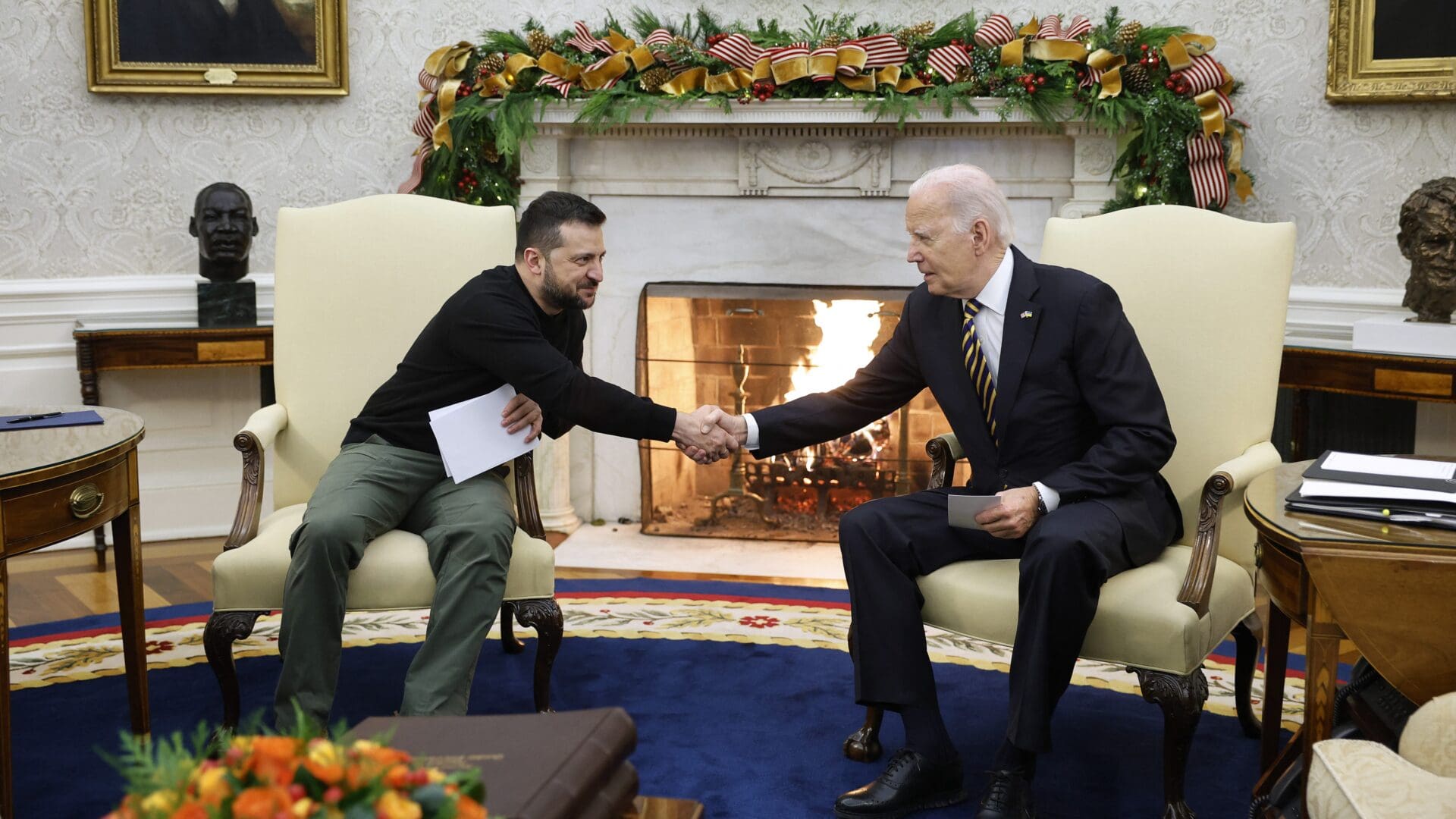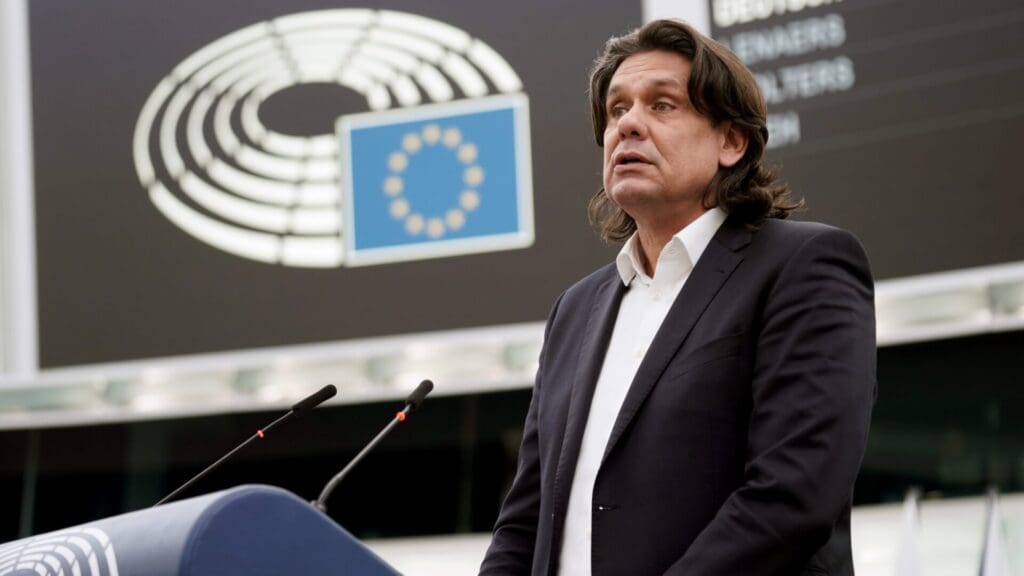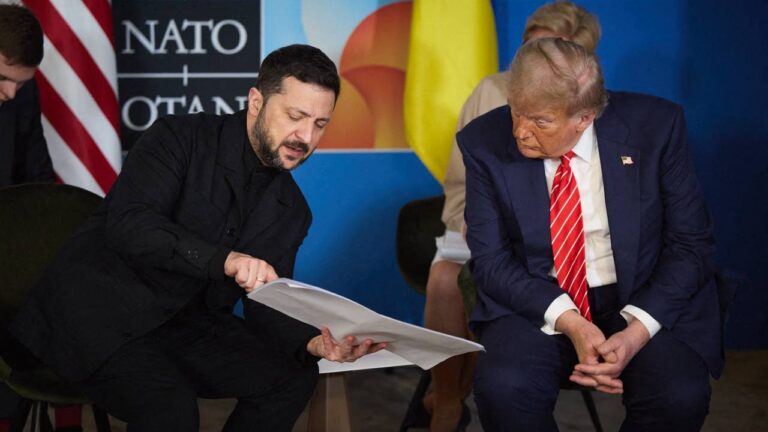The war in Ukraine has been dragging on for almost two years. Both sides have suffered hundreds of thousands of casualties, with staggering civilian losses on the Ukrainian side, not to mention the extensive damage to infrastructure. Millions of Ukrainians have fled the war-torn country, many with no plans to return. Due to Western sanctions, Europe’s economy and competitiveness lie in ruins, plunging to depths not seen for decades. Diplomatic relations between the West and Russia have completely broken down, fostering a deep-seated distrust between the parties.
The other day, Politico reported that the Biden administration would no longer prioritize a victory in Ukraine but instead focus on bringing Kyiv and Moscow to the negotiating table.
Washington, according to an anonymous US source, is willing to pursue peace even at the cost of Ukrainian territorial losses.
The source goes so far as to claim that this has been the US’ goal all along—to ensure that Ukraine has the strongest possible position at the negotiating table. Let’s savour that for a moment.
Doug Bandow pens a lengthy opinion piece on the subject published by The American Conservative, elucidating precisely why Washington’s U-turn is morally unacceptable and what the US leadership should do to salvage what can be saved. In a powerful concluding sentence, the author sums up the only conclusion that can be drawn from the past two years: ‘American decision-makers are not fit to manage the foreign policy of a postage stamp nation like Monaco, let alone a superpower like the US.’
As a Hungarian reading about the Biden administration’s plans for peace talks in Ukraine, one experiences mixed feelings. Initially, one might be inclined to simply say, ‘We told you so.’
Hungary, its government, and the overwhelming majority of its people have desired peace since February 24, 2022. It’s not an exaggeration to state that Péter Szijjártó, Katalin Novák, and Viktor Orbán have made over a hundred statements, speeches, and addresses in the last two years, explaining why peace should be concluded promptly and why the collective Western aspiration for war and victory in Ukraine, detached from reality, is misguided. However, gloating is not an admirable response—especially in a situation like this, it has no place at all.
From the very beginning, Hungary has demonstrated outstanding solidarity and altruism towards Ukraine and the hundreds of thousands of Ukrainian refugees arriving in the country. Similar to other European states, Hungary has provided them with food, support, and housing. All this occurred while the Hungarian government faced constant criticism and attacks from Kyiv, Brussels, and other European capitals.
The criticism primarily revolved around Hungary’s refusal to supply lethal weapons to Ukraine and its reservations about endorsing Western sanctions against Russia. These weapons, as we know now, were sent by Washington and its Western allies to Kyiv to bolster its negotiating position with Russia. These sanctions were designed to exert pressure on Moscow, hoping it would yield. The intention was for the bear to turn toward Europe and say, ‘Enough is enough, I surrender.’
Glenn Diesen on Twitter: “Another military failure:- “The only possible conclusion is that most Western policymakers are fools… Before the war, Ukraine likely could have kept its territory by agreeing to neutrality-without suffering tens or hundreds of thousands of casualties”https://t.co/Il9ByVkZgC / Twitter”
Another military failure:- “The only possible conclusion is that most Western policymakers are fools… Before the war, Ukraine likely could have kept its territory by agreeing to neutrality-without suffering tens or hundreds of thousands of casualties”https://t.co/Il9ByVkZgC
None of the Western dreams have materialized, as might have been suspected by those who observed events without being led astray by wishful thinking. Kyiv finds itself in the worst negotiating position possible, particularly after Washington, with Brussels’ assistance, dragged it into a wholly unnecessary and avoidable war. The sanctions have indeed impacted Russia, but the toll on Europe has been even greater. Additionally, as a consequence of the conflict in Ukraine, as noted by Doug Bandow, Moscow and Beijing have forged closer ties than ever before in history. All of this is occurring at a time when the transatlantic hegemony of the world order is beginning to unravel, giving way to the emergence of new centres and axes of power.
After the change in strategy in the US, there is likely no doubt that Viktor Orbán has been the only European leader who has maintained a sober approach from the start.
Since the outbreak of the war, the Hungarian prime minister has been branded with various labels from the Western mainstream media: Putin’s puppet, Putin’s lapdog, pro-Russian, dictator, and more. Last October, when the prime minister held talks with the Russian President in Beijing, many questioned, ‘Why is he meeting with the war criminal with blood all over his hands?’ Unlike his critics, Prime Minister Orbán understands diplomacy and recognizes that this war will eventually conclude, necessitating a renewed engagement with Russia for Europe.
The latter creates an especially unpleasant situation for Europe in the wake of the US shift.
The last two years have revolved around nothing other than the collective punishment of Russia and its people, at times through sanctions, border closures, or even street-level insults. Europe has attempted to sever all ties with Russia—economic, business, energy, or diplomatic. The question that rightly arises is: where do we go from here?
Which European leader will step up to take responsibility and admit that millions have suffered and become fugitives due to the misguided policies of the past two years?
When the phone rings in the Kremlin, who will be on the other end of the line—Scholz or Macron? And what guarantee is there that Putin will be willing to engage with them? Currently, apart from Viktor Orbán, no other European leader is being received by the Russian President.
There are so many questions that, in principle, we shouldn’t even be asking if, two years ago, we had responsible leaders in Washington and Brussels. However, that is the past, and no one can reverse it. Now, as Doug Bandow writes, we must work to initiate negotiations as soon as possible. Primarily, this involves making Kyiv aware that the war cannot be won and that it must negotiate over territorial claims with Russia.
European and US leaders must cease making declarations of Ukrainian victory, acknowledge the bitter reality, and formulate a plan acceptable to both Kyiv and Moscow. They must provide Russia with guarantees that will assuage Moscow’s memories of being deceived by Western powers in Minsk a few years ago. Subsequently, security architectures must be established to ensure that a situation like the current one never happens again in Europe. This is in the interests of Ukraine, Russia, and Europe, which have suffered the most over the last two years.
Until this admission is made in the minds of American and European leaders, we can do nothing but wait. In the meantime, a message to Washington and Brussels: listen to the Hungarians sometimes.








